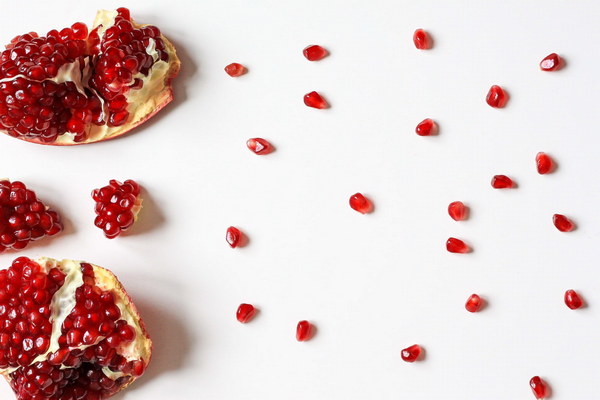Unlocking Youthful Radiance The Science and Secrets Behind Effective Anti-Aging Skincare
In the relentless pursuit of timeless beauty, the quest for effective anti-aging skincare is a journey that has fascinated both scientists and beauty enthusiasts alike. Understanding the science behind anti-aging skincare can help us navigate the vast array of products available, and arm us with knowledge to make informed decisions. Let's delve into the essentials of anti-aging skincare, focusing on the latest research and timeless secrets.
The Foundation of Anti-Aging Skincare: Understanding Skin Aging
The process of skin aging is a complex interplay of intrinsic and extrinsic factors. Intrinsic aging, also known as chronological aging, is the natural aging process that occurs with time. Extrinsic aging, on the other hand, is influenced by external factors such as sun exposure, pollution, and lifestyle choices.
As we age, the skin undergoes several changes:
1. Loss of Collagen and Elastin: These essential proteins provide structure and elasticity to the skin. With age, their production slows down, leading to sagging and wrinkles.
2. Reduced Hyaluronic Acid: This hydrating substance diminishes over time, resulting in dryness and loss of plumpness.
3. Thinning of the Skin: The epidermis and dermis become thinner, making the skin more susceptible to damage.
4. Increased Melanin Production: This can lead to age spots and hyperpigmentation.
Key Ingredients in Anti-Aging Skincare
To combat these changes, anti-aging skincare products are formulated with ingredients that target specific aging concerns:
1. Retinoids: These derivatives of vitamin A are renowned for their ability to boost collagen production and improve skin texture. They can also help lighten hyperpigmentation and reduce fine lines.

2. Peptides: These small chains of amino acids stimulate cell turnover and collagen production, promoting a more youthful appearance.
3. Hyaluronic Acid: As mentioned earlier, this hydrating ingredient helps to plump up the skin and maintain its moisture levels.
4. Antioxidants: Free radicals are unstable molecules that can damage the skin. Antioxidants such as vitamin C, vitamin E, and ferulic acid neutralize these free radicals, protecting the skin from environmental stressors.
5. Niacinamide: This B vitamin can help to reduce the appearance of pores, even out skin tone, and calm redness.
Sun Protection: The Most Important Anti-Aging Step
While the ingredients listed above play a significant role in anti-aging skincare, none is more crucial than sunscreen. UV radiation is the number one cause of premature aging, leading to wrinkles, hyperpigmentation, and even skin cancer. A broad-spectrum sunscreen with an SPF of 30 or higher should be applied daily, even on cloudy days.
Beyond Products: Lifestyle and Home Remedies
In addition to using anti-aging skincare products, adopting a healthy lifestyle can significantly impact the health of your skin:
1. Stay Hydrated: Drinking plenty of water helps to maintain skin elasticity and plumpness.
2. Eat a Balanced Diet: Nutrients such as vitamins C, E, and omega-3 fatty acids are essential for healthy skin.
3. Get Adequate Sleep: Sleep deprivation can exacerbate skin aging, so aim for 7-9 hours each night.
4. Avoid Smoking and Limit Alcohol: Both smoking and excessive alcohol consumption can accelerate the aging process.
5. Exercise Regularly: Physical activity boosts blood flow, which can improve skin health.
Conclusion
Unlocking youthful radiance involves a combination of effective skincare products, a healthy lifestyle, and sun protection. By understanding the science behind anti-aging skincare, you can make informed choices that will keep your skin looking and feeling young for years to come. Remember, the key to successful anti-aging skincare is consistency and patience, as the benefits of these products are often cumulative and take time to manifest.









